Yesterday we returned to mark the Nakba in the Israeli public space. Not in Israel but in front of its embassy, in Brussels, our city of residence. Together with friends and activists who commemorated the Nakba on the Israeli Independence Day for the first time. Some of us are Israelis, or former Israelis, and we are all Jews. The conversations between us around the preparation of posters raised unresolved questions. “Is this really an independence day?” Of “Israel”? Yes, I insisted. Even if I do not like this day and certainly do not support the existence of a Jewish state. However, it is a reality that we must change and there is no point in denying it.
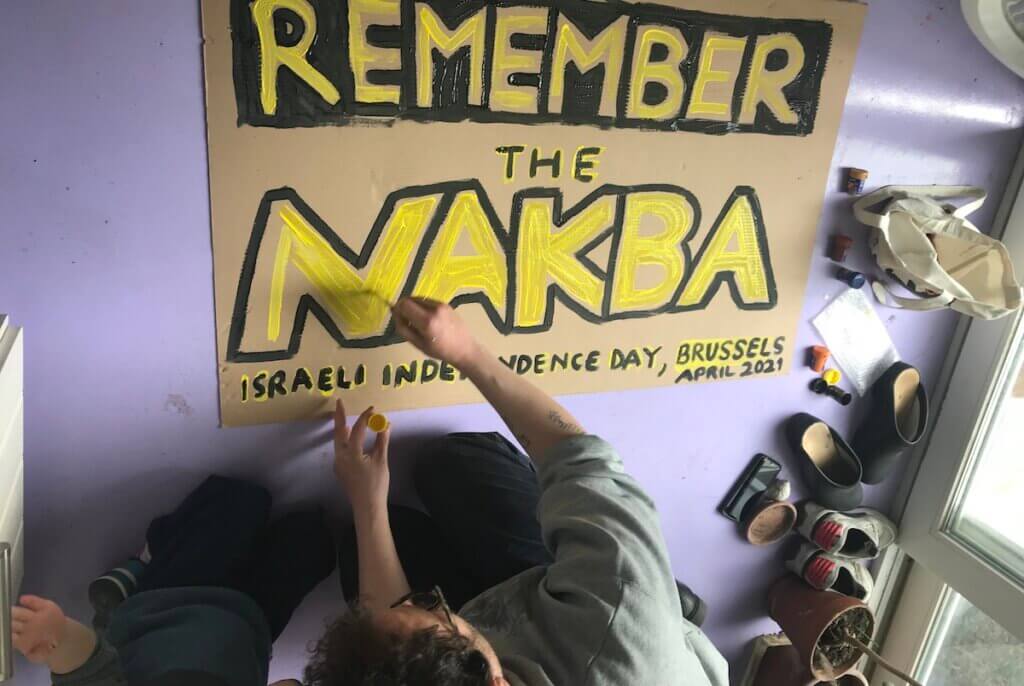
When we stood in front of the embassy with a sign suggesting “Remember the Nakba”, it took exactly one minute until a security guard from the embassy (pictured above) to come out to us and aggressively try to snatch the sign from us. We immediately approached him in Hebrew and demanded that he stop behaving like an… Israeli. Well, we did not say that but it felt exactly like that. But his impudence to treat us with such rudeness was reminiscent of home. An unpleasant memory. Then he called us “cowards” and called the police. The police complied with his request and a policeman visited one of the activists in his house and warned him to ask for permission to demonstrate next time.
In Israel, the independence day, and before it the memorial day for the fallen soldiers, are the most loaded days of the year. The mourning for the Jewish bereavement, only the Jewish, permeates every corner. The reversal that takes place at the end of memorial day — the outbreak of independence day celebrations — is the mania that immediately following the depression. Israelis go out to the parks to barbecue animals and flow to the streets and gather around entertainment stages to sing about “our wonderful country”. This is very disturbing, so for twenty years I had been busy on this day taking to the streets to remind Israelis of the terrible price that was paid (and still is!) for the establishment of the Jewish state.
Unfortunately, Jewish Israelis commemorating the Nakba in Israeli space during Independence Day have almost disappeared. There are of course quite a few who disapprove or are appalled by the nationalist revelry but they shut themselves in their homes, lock up their windows, and hope (in vain) that the sounds of the festive militaristic flight, which pierces the sky all over the country, won’t penetrate their private space.
From a distance, from Brussels, the intensity of emotions and exposure to national days is much weaker. It is in the memory and in the virtual spaces of the various media. The gap between the intensity of independence day in Israel and its experience from afar indicates that real life is still here and has not completely moved into the new media.
The geographical distance also makes it possible to think more clearly about Israeli settler colonialism. In Israel, the obvious reality of the country being an perpetual occupation and expropriation enterprise, has faded in the flow of particularly stressful life in this country. The distance of a few thousand kilometers and the relative calm life in Europe, has allowed me to understand one of the distinctive features of Israeli colonialism compared to its “siblings” in the United States, Canada and more: it is a given, obvious to us without the need for any mediation or interpretation. In the other countries founded by settler colonialism the dispossession of the indigenous peoples have faded in the public spaces and discourse for most. It of course remains in economic, cultural, and linguistic structures, but these require an academic or activist mediation to expose them. In the United States, for example, one can admire the landscape of nature without seeing any signs of the life of the first nations in it. To see them one has to explore beyond what is often seen.
In Israel, on the other hand, Palestine is in so many places despite efforts to erase and deny it. It is impossible to walk around the Talbiyeh and Katamon neighborhoods of West Jerusalem and not notice the impressive Arab houses that Jewish Israelis have been living in since the 1948 dispossession of the Palestinians. The same is true in Jaffa, Haifa, and many kibbutzim. And the settler-colonial process continues today, the Nakba continues, as it is well known. In Sheikh Jarrah, a Palestinian neighborhood in Jerusalem, families are currently being evicted from their homes in favor of Israeli settlers.
From this point of view, the Nakba is not a memory to be be remembered, as our sign suggests. It is a contemporary reality that began in 1948 and has not ceased to this day. Or perhaps memory can be understood differently? Not as something that has happened and passed. Memory exists within us. “Everything materializes in memory,” Hannah Arendt taught us. The human experience is nothing but a lasting memory, so the commandment “Remember the Nakba” suggests opening one’s eyes to see the Nakba in the present. It is in memory of the displaced refugees, but also within how the return of their descendants has been prevented, and in the intolerable living conditions in Gaza and in the refugee camps throughout the Middle East.
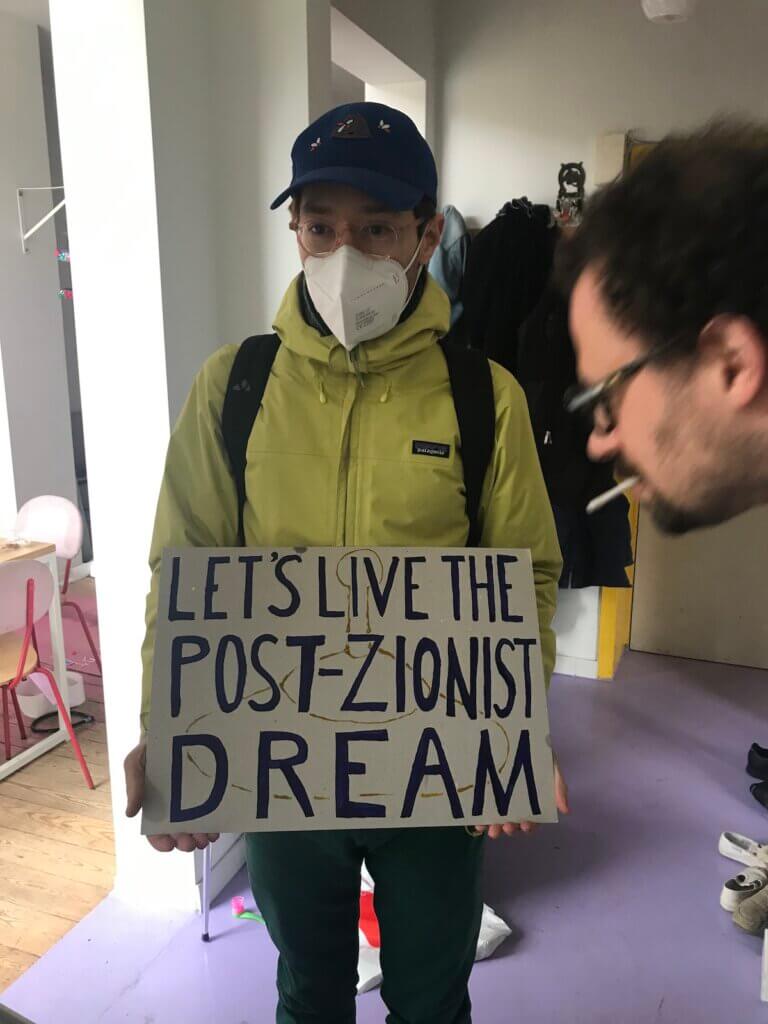
As privileged residents of Europe, it is important for us to also to mention the continent’s responsibility as the “parent of Zionism.” Without the enthusiastic support of Europe, from the beginning of the Zionist enterprise to the present day, the Nakba would not have taken place and the Palestinians would not have been expelled from their homeland. As non-Zionist Israelis, we long for a day when we can return to a truly independent state and not a state that relies on its military might and on Europe and the United States.
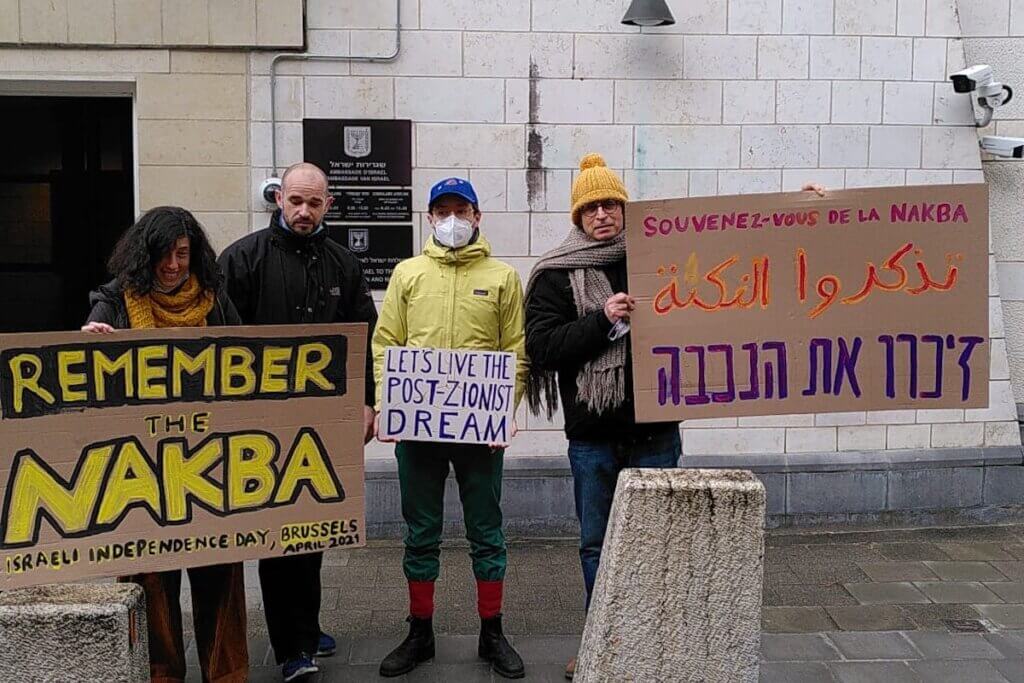
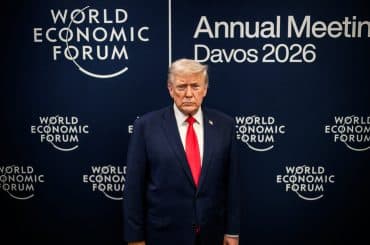
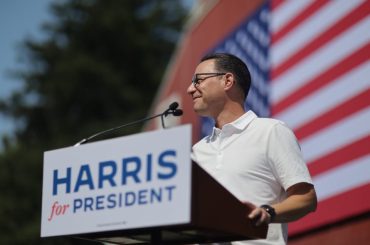
Just received from Canada:
Check out this video released on April 15th featuring Canada’s Prime Minister Justin Trudeau celebrating “Israel’s” anniversary while he ignores the thoroughly documented monstrous crimes Zionists of foreign origin have committed against the defenseless indigenous Palestinians for now 73 years. Truly disgusting and cowardly!! He also ignores the fact that the vast majority of Canadians stand with the Palestinians.
https://www.youtube.com/watch?v=Pchcr9sWtM0
There is a day set aside for commemorating the Nakba. Israel’s Independence Day is not it.